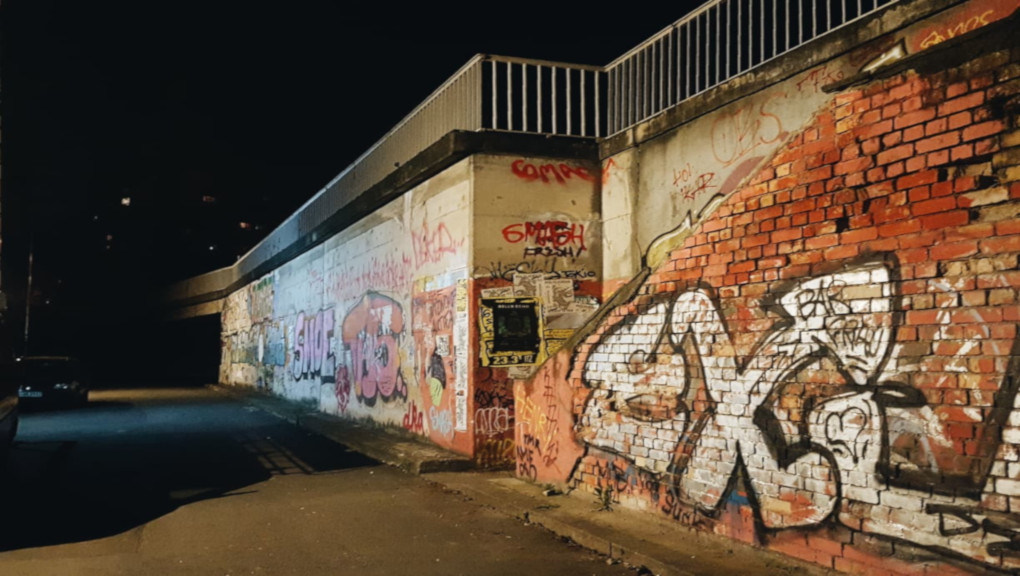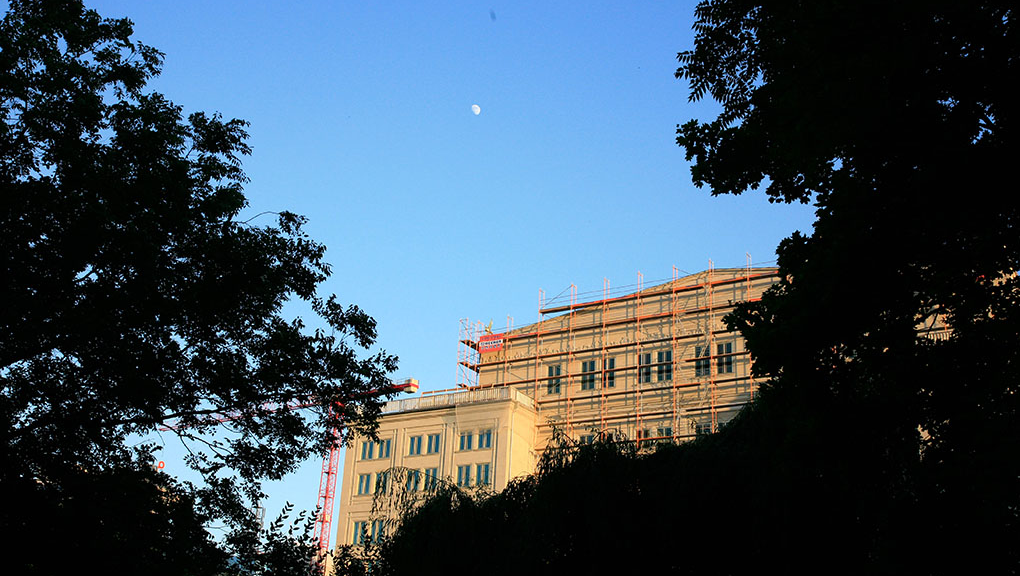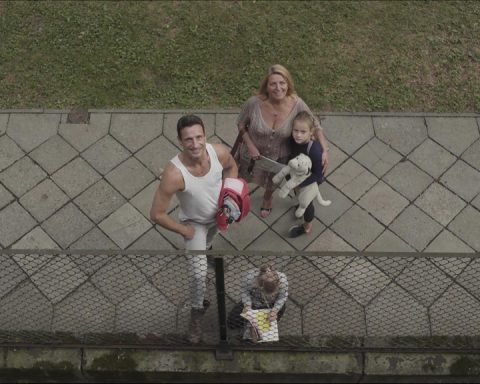I was not really ready for it when I first walked into Öndög at the Berlinale on my second day. The screening was at 9:30 am, I was running late, hurrying to the venue and the seats were uncomfortable.
In that state, Öndög’s almost sedate pacing was not an ideal start to a day that held four other films. However, as the festival progressed, it managed to occupy my mind more and more frequently. More so than films I exited with a fist pump, ready to declare a masterpiece.
Öndög plays out in a few singular locations in the middle of the Mongolian steppe.
A body is found by local authorities in a very remote area. So remote they have to rely on the only local inhabitant to keep the rookie cop guarding the body from freezing or being attacked by wild animals. In the first act of the film, we get a sense of the very disparate backgrounds of these two characters. The young, eager policeman keeps himself warm by dancing to music from his phone, while the shepherdess orders her drunkard friend to help slaughter a sheep for dinner.
Both sides of this story unfold slowly, giving us insight into the two protagonists.
Then, the two come together as she brings him warm mutton stew in a beautiful scene which anchors the film. They warm each other beside her mount, a huge camel that serves as a frame against the background of the night sky. The cop matter-of-factly asserts that he probably would have died if she hadn’t arrived.
This adds to the otherworldly feel Öndög conveys in its tender portrayal of a truly foreign part of our world.
In this barren wasteland, next to a corpse and leaning on a gigantic animal, the mature herder seduces the young cop with alcohol and cigarettes. And while this might suggest sinister intent or a moral point to hammer home, the embrace that the two share is oddly beautiful.
Their shared digression soon results in the movie’s namesake, Öndög (meaning “egg” in Mongolian), when the shepherdess finds out she is pregnant. In line with the film’s expressly unorthodox Weltanschauung, this development also upends our expectations. Her drunken companion reveals that they previously lost a baby, and he is now eager to welcome her Öndög like his own.

When reading the plot points, one might expect a more suspenseful, dramatic film with intrigue and saucy dialogue. Director Quan’an Wang’s unconventional approach in letting geography dictate both tone and content of the story allows this tale to play out in a nearly alien way. However, this Mongolian film still feels extremely authentic and relatable, foreign and yet entirely, universally human.
Over the next weeks, the author will give us a taste of some of the most memorable films he caught at the Berlinale film festival, which took place earlier this year.







